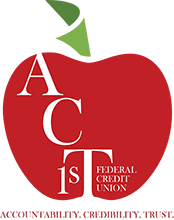Delays in this year’s FAFSA and financial aid process have left many families scrambling to find last-minute funding after reviewing financial aid award letters. Now tuition bills are due, and after scholarships, grants, and federal aid, there’s still a remaining balance – what do you do?
Don’t panic! Here are a few suggestions for last-minute ways to foot the bill:
Cut Unnecessary Costs
Look at ways to reduce any optional costs. While some items for college are non-negotiable (tuition), others are more flexible and could provide opportunities to save money.
Here are a few ways you could save:
Meal Plans: Do you have options for selecting a dining plan? If you typically do not eat a full breakfast, or plan to go home on weekends, determine how many meals you truly need per week and adjust accordingly.
Transportation: Can you survive without a car and save on parking? College campuses tend to be walkable, or you could consider riding a bike. Many college towns also offer student discounts on public transportation.
Books and supplies: Shop around for the best price on textbooks and other supplies. Used textbooks are often available in bookstores and online, and come with a lower price tag.
Housing: It is typically more costly to have a single dorm room than to share one with a roommate. The same is also true for off-campus housing, where you can split the rent and utilities.
It all adds up. You could save thousands of dollars a year by making a few small adjustments!
Payment Plans
Contact your school’s financial aid office to see what options you might have for tuition payments. Most offer monthly or per semester payments to help spread out the costs. Keep in mind that you may have to pay an enrollment or management fee for this service, but it could be worth it if you need more time to come up with extra money.
Work for It
While school should be your number one priority, think about getting a part-time job. Most colleges employ students on campus, and stores and restaurants nearby are used to working around students’ schedules. The money you make could go toward books, housing, or a payment plan if you’ve set one up.
Late Deadline Scholarships
While most scholarships are awarded in the spring, there may be some that are still available and have a later deadline. Search online or with local community organizations to see if there is unclaimed money available.
Just be sure to watch for these red flags outlined by U.S. News:
Phony organizations: The scholarship site should have an About Us page, giving the name of the business or nonprofit offering the award. Do a quick web search to make sure the business or nonprofit exists and has made recent updates to the website.
No clear criteria for how entries will be judged: If the scholarship website doesn’t outline the factors that evaluators will consider, the scholarship could be phony.
Requests financial information: Most legitimate scholarship organizations have access to information from the FAFSA. That means you shouldn’t have to provide Social Security numbers, salaries and other personal information for yourself or your parents.
Absence of clear privacy policies: Before applying for a scholarship, read the organization’s privacy policy on the website. Make sure it states definitively that it won’t sell information you provide.
Consider Private Student Loans
Private student loans like those offered by credit unions were developed for this exact situation. Once you’ve exhausted all other means of financial aid and payment options, a private student loan can help cover the balance that’s left.
When you’re comparing loans, look at interest rates, repayment terms, and fees to make sure you’re selecting the best option for your situation. You can also speak with our team of experts (at no cost to you!) to work through your options.
Ask a question via email, or set up an appointment via phone. We’re here to help!
We're growing and we're taking you with us.
MOVING FORWARD TOGETHER.
Categories : Blog
© ACT 1st FCU | Privacy Policy | Accessibility
ACT 1st FCU is Federally Insured by NCUA and an Equal Housing Lender. We do business in accordance with the Fair Housing and Equal Credit Opportunity Act. NMLS #654273 APR = Annual Percentage Rate. Rate based on creditworthiness and term of loan. *APY = Annual Percentage Yield. Rates are subject to change at any time and are not guaranteed. We may provide links to third party websites. The Credit Union has no control over any other website and is not responsible for the content, accessibility or security of any site other than this one. Users assume all responsibility when they go to other sites via the links on this page.


Federally insured by NCUA


